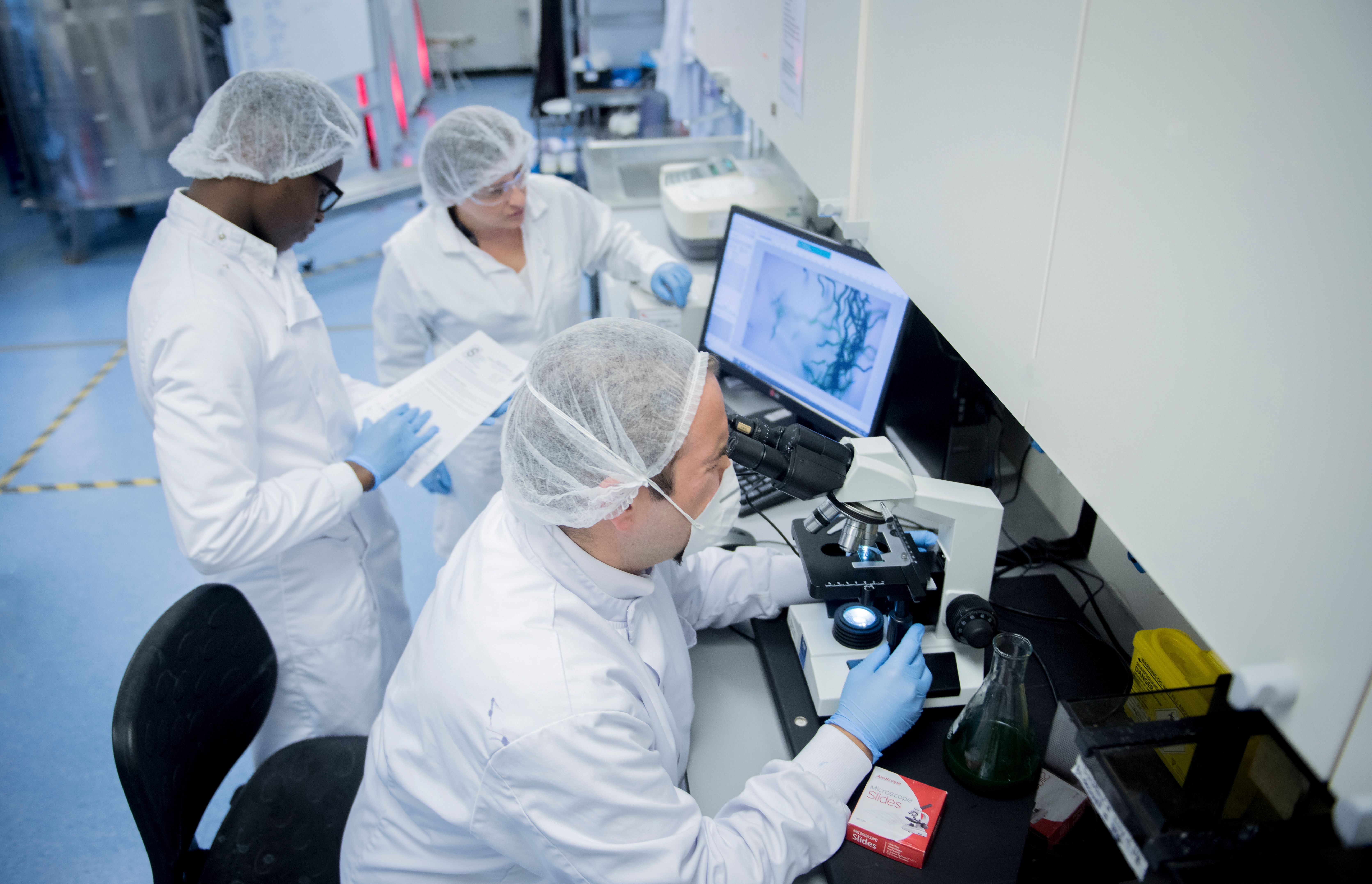ScotBio secures over £100,000 of funding from Medical Research Scotland for new COVID-19 research
ScotBio, a fast-growing Scottish biotech business, is expanding its R&D programme thanks to a £100,000 award from Medical Research Scotland.

The expansion will help the firm explore the potential of cyanobacteria to treat emerging viral pathogens, including coronaviruses.
The company, which is currently using its extensive biotechnology expertise to mass-produce natural ingredients and colourants from cyanobacteria for the food industry, is now looking at how its advanced technical skills and production processes could be used in the creation and manufacture of treatments for current and future virus pandemics.
Thanks to the funding, a new collaborative partnership with Infection Medicine at the University of Edinburgh will investigate how cyanobacterial extracts, recognised previously for their antiviral activity, can be commercially mass-produced using ScotBio’s established production processes and used in the treatment of major emerging viral diseases. The award of over £100,000 will fund a PhD project which will run for a four year period.
Infection Medicine is a multi-disciplinary centre at the University. Host-pathogen interactions is a key research theme of the centre, which investigates host-pathogen interactions that are vital to our understanding of host biology, infectious diseases and effective therapies.
Dr Richard Sloan, a lecturer in Infection Medicine at the University of Edinburgh, said: “The current coronavirus pandemic has unfortunately shown that there is a deficit of ‘on the shelf’ antiviral compounds with broad activity against a range of viruses. These viral outbreaks are unfortunately normal, and to be expected, so it is important that this therapeutic deficit is addressed.
“Past research already indicates activity against ‘families/groups’ of viruses likely to cause outbreaks or pandemics, including influenza and coronaviruses. With this ScotBio collaboration we will go one step further determining specific action against, for example SARS-CoV-2 or MERS.”
Dr Rocky Kindt, chief technical officer at ScotBio, added: “The overall aim of this new research project with the University of Edinburgh is to identify the antiviral therapeutics that can be extracted from cyanobacteria and subsequently devise methods for their commercial mass production. It is something that we are all very excited about.”
The research project will formally begin at the University of Edinburgh in September 2021 and will last up to four years but ScotBio has already begun accelerating its in-house research to make sure that when the project begins it will already be at an advanced stage.
Polly Van Alsytne, chief operating officer at ScotBio, commented: “At the moment virtually all commercial production of cyanobacteria is via outdoor cultivation which can be held back by inherent variability, scalability, and quality issues which means it prohibits any supply into the pharmaceutical industry. Our unique production processes are all carried out indoors in purpose built tanks resulting in intensive, closed, and hygienic production all year round irrespective of climate or season thus addressing the concerns of the pharmaceutical sector.
“As well as the technical and scientific skills and knowledge in this field, our current work in mass producing natural ingredients and colourants from cyanobacteria for the food industry means that we have the production capability and understanding of the required processes, and would have sufficient volume of the required biomass needed to mass produce antiviral products.”
Professor Philip Winn, chair of Medical Research Scotland, said: “ScotBio has a strong track record of collaborating with academia to further existing research and to look at ways of successfully commercialising that knowledge. This new project has heightened importance as the world continues to face the challenge of coronaviruses.”




